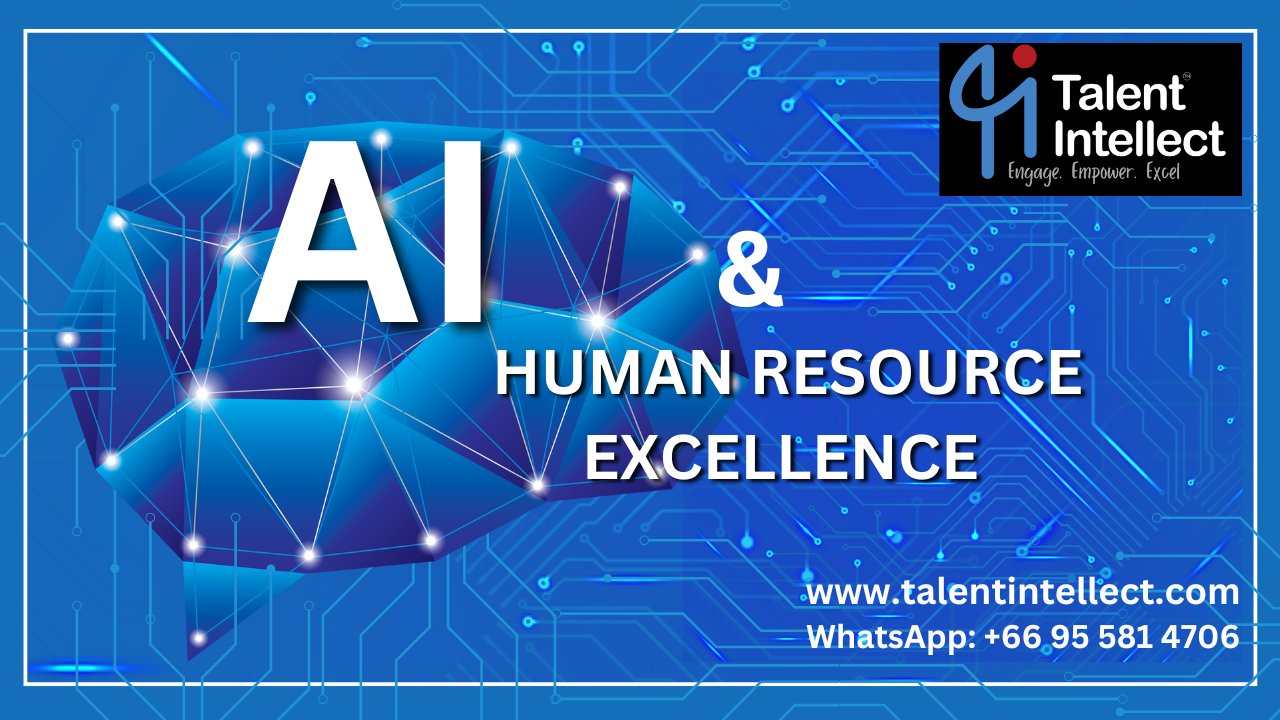The business landscape is undergoing a profound transformation. Sustainability has become a critical metric for success, demanding companies to operate with a focus on environmental and social responsibility. Artificial intelligence (AI) is rapidly reshaping industries, automating tasks and offering new avenues for data-driven decision-making. In this dynamic environment, the role of Human Resources (HR) is more crucial than ever. By leveraging AI and fostering HR excellence, organizations can navigate this complex terrain and achieve sustainable value creation.
The Sustainability Imperative
Consumers, investors, and regulators are increasingly demanding corporate accountability on environmental and social issues. Companies that prioritize sustainability outperform their peers in terms of financial performance, brand reputation, and talent acquisition. A 2020 McKinsey report found that companies with strong environmental, social, and governance (ESG) practices generate superior shareholder returns. Sustainability is no longer a “feel-good” initiative; it’s a strategic imperative for long-term success.
The AI Revolution in HR
AI is transforming the HR landscape by automating repetitive tasks, such as recruitment screening, payroll processing, and performance management. This frees up HR professionals to focus on more strategic initiatives, such as talent development, employee engagement, and fostering a positive work culture. AI can also be used to analyze vast amounts of employee data, providing valuable insights on workforce trends, skills gaps, and employee sentiment.
Human + Machine: The Power of AI-Augmented HR
While AI offers significant benefits, it’s important to remember that it’s a tool, not a replacement for human expertise. The power lies in the synergy between AI and HR professionals. AI can automate tasks, analyze data, and identify patterns that might escape human notice. HR professionals, with their human touch and strategic thinking, can interpret the data, make informed decisions, and build meaningful relationships with employees. This human-machine collaboration is essential for creating a sustainable and high-performing workforce.
HR Excellence in a Sustainable Context
HR excellence in a sustainable environment entails fostering a workforce aligned with the company’s sustainability goals. This includes:
- Attracting Talent with Sustainability Values: Highlight your commitment to sustainability in your employer branding and talent acquisition strategies. Attract talent who share your values and are passionate about making a positive impact.
- Developing Sustainable Leaders: Invest in leadership development programs that equip leaders with the skills to translate sustainability goals into actionable strategies.
- Building a Culture of Sustainability: Embed sustainability principles into your company culture through training programs, green initiatives, and employee recognition programs that reward eco-conscious behavior.
- Diversity & Inclusion: Build a diverse and inclusive workforce that brings a range of perspectives to the table. Diversity of thought fosters innovation and problem-solving, which are crucial for addressing complex sustainability challenges.
- Employee Well-being: Promote employee well-being through health and wellness initiatives, work-life balance programs, and a focus on psychological safety. This ensures a healthy and engaged workforce empowered to contribute their best.
How AI Enables HR Excellence for Sustainable Value Creation
AI can be a powerful tool for HR professionals to achieve excellence in a sustainable context. Here are some specific ways:
- Sustainability-Focused Recruitment: AI can be used to screen candidates for their knowledge of sustainability practices and their alignment with the company’s ESG goals.
- Data-Driven Skills Gap Analysis: AI can analyze employee data to identify skills gaps related to sustainability initiatives. HR can then develop targeted training programs to bridge these gaps.
- Performance Management for Sustainability: AI can be used to track employee contributions to sustainability goals and provide feedback on their performance.
- Employee Engagement & Well-being: AI-powered platforms can deliver personalized learning and development opportunities, career development recommendations, and mental health resources – all factors contributing to employee engagement and well-being.
- Diversity & Inclusion: AI can help in identifying and mitigating bias in recruitment and promotion processes, promoting a more inclusive workplace.
The Sustainable Symphony: Building Enterprise Value
By harnessing the power of AI and fostering HR excellence, companies can create a virtuous cycle of sustainability, employee engagement, and long-term value creation.
- Sustainable Practices Improve Brand Reputation: A strong sustainability record attracts customers, investors, and talent who value these practices.
- Engaged Workforce Drives Innovation: When employees are passionate about the company’s mission, they are more likely to go the extra mile, resulting in increased innovation and productivity.
- Innovation Fuels Sustainable Solutions: A culture of innovation fostered by a skilled and engaged workforce can lead to the development of new products and services that address environmental and social challenges.
The path to sustainable value creation is paved with collaboration. By working together, HR professionals, business leaders, and employees can translate sustainability goals into actionable strategies and build a future where business success goes hand-in-hand with positive






